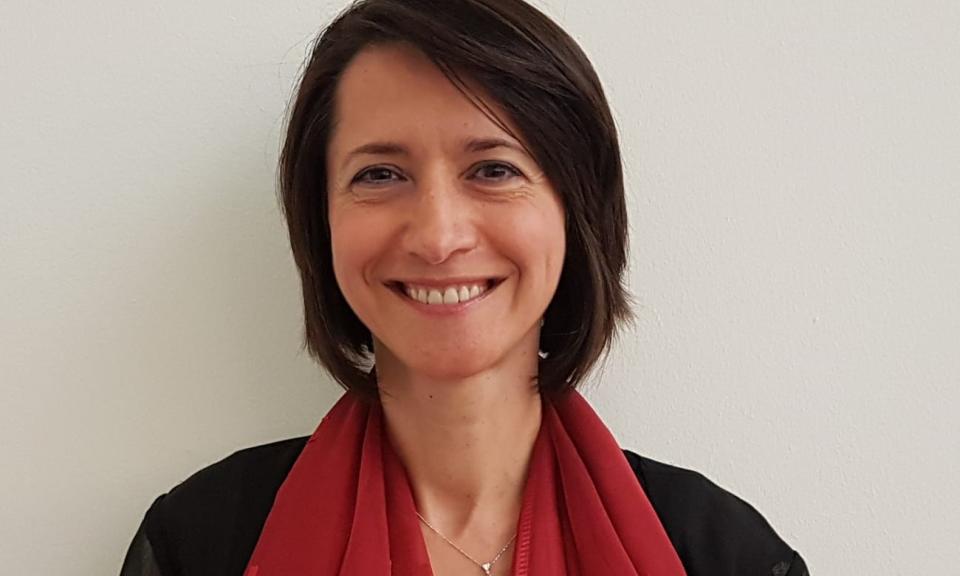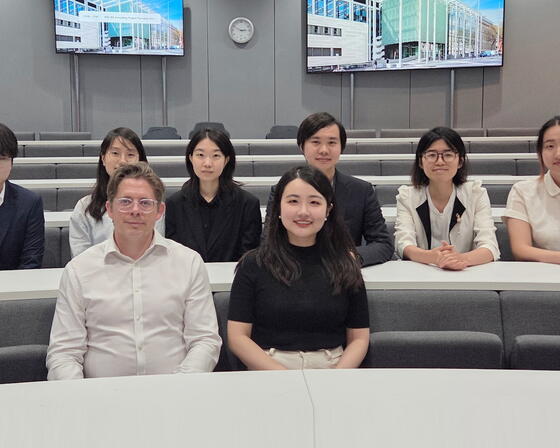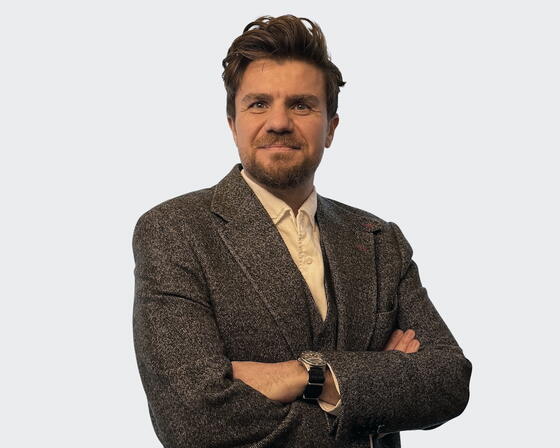Alumni perspective on healthcare management in the UK

Theodora Kalentzi (MSc International Health Management 2004), a specialist in women’s health, experienced medical practitioner, director, consultant and entrepreneur. With a long and distinguished career in the NHS, Theodora now runs her own private clinic offering specialist menopause care and a wide range of GP services. Providing a holistic approach to her work, we spoke to Theodora about how this could be applied across the healthcare system as a whole, improving patient experience and overall efficiencies.
Tell us about yourself
I started as a trainee doctor in the UK in 1996 and trained across various clinical specialities before I became a GP in 2001. My career has seen me delivering a variety of roles, ranging from clinical as an NHS GP, to educational during my time as a GP tutor for the London Deanery, University of London, to mentoring in primary care, to senior management as an NHS Medical Director and Responsible Officer. I now manage my own private practice, Medical Prime. It’s been a busy portfolio career!
Early on as a GP, I chose to specialise in women’s health issues, specifically the menopause, as I realised this was an area of healthcare which was underrepresented and yet something that potentially affects half the population.
I also became a healthcare trainer providing experienced support in the delivery of multidisciplinary clinical management training. This has involved consultancy and project work, with a focus on developing management skills, teaching employment law awareness, performance management and clinical investigations.
Institutions such as Imperial have a very important role to play in this – both in terms of lobbing government and in training the managers of tomorrow. Any research that backs up the needs of the healthcare profession is most welcome and training is vital.
During your time at as consultant, were there any key themes?
A reoccurring theme was the challenge in communication and systems within practice teams and between healthcare providers such as primary and secondary care. I would work with teams focusing on best practice solutions, improved organisational behaviour and communication channels, encouraging openness and accountability.
This openness is also something I would love to see between the private and public healthcare sector. It would save time, money and improve patient care.
What do you think are the greatest challenges facing the healthcare sector?
I believe the greatest challenge is making change happen. There are many people with lots of good ideas and the drive to commit, but the NHS is a massive operation. Implementing change does not come easily or quickly.
There are many stumbling blocks to change. Many of the processes are centralised, and while it is important to have governance and overall control, too much regulation and emphasis on systems and processes can hinder change. Providing local managers with greater autonomy would help and allow for local adoption of relevant processes. The focus of all our work is the patients themselves, their needs are paramount.
Now that I work in the private sector, I see how much hostility there is to private healthcare. I don’t believe it should be ‘them and us’, we must all focus on the treatment and care of our patients. As doctors, we are all ultimately regulated and revalidated by the same governing body, the General Medical Council, so if we all worked as one healthcare community, there would be benefits and efficiencies for all involved.
The thing that saddens me the most is the fact that healthcare professionals are suffering. When you see talented and dedicated professionals leaving due to stress, mental health issues, long term sick leave, or taking early retirement, it is time for radical change.
What can institutions such as Imperial do to help support this change?
Institutions such as Imperial have a very important role to play in this – both in terms of lobbing government and in training the managers of tomorrow. Any research that backs up the needs of the healthcare profession is most welcome and training is vital.
Having held senior positions in the healthcare profession, and attending many training sessions, I was sometimes surprised that management tools such as PESTEL and SWOT analysis were only being taught at director level. These are basic managerial skills that everyone should have. If managers and clinicians are equipped with these principles at the beginning of their career, it is much easier to effect change – your starting point becomes implementation, not the concepts behind why change management is important.
Healthcare professionals also need to see the end to end process, so that they can continuously scan the environment, and adapt and improve accordingly. It is crucial to understand the need for change, if you resist this you become part of the problem.
How did your time at Imperial impact on your career?
My time at Imperial changed my life! I loved the course and everything about it. It truly opened up a new world to me.
I gained a great deal of self-awareness, particularly in how I work in a team, as well as how others do. Being aware of your own and others’ natural preferences, personalities, working approach etc. means it is easier to manage a team and share relevant tasks accordingly.
It is important to look at the complimentary skills of the whole team. When I was group coordinator, I took time to look at the personality types and team environment to assign tasks more effectively, matching people to what they did best. This was a skill I carried forward with me and used in my consulting also. Being able to coach teams in how to manage each other’s strengths and weaknesses improves overall performance and working environment.
What is next for you?
I set up my own clinic last year and received a huge response to women’s health services, specifically around the menopause. I believe women deserve a choice and the option for different treatments. I would love to see a more joined up approach to private and NHS care. Until then, I will continue to do the best for my patients, providing treatment, advice, care and choice.



